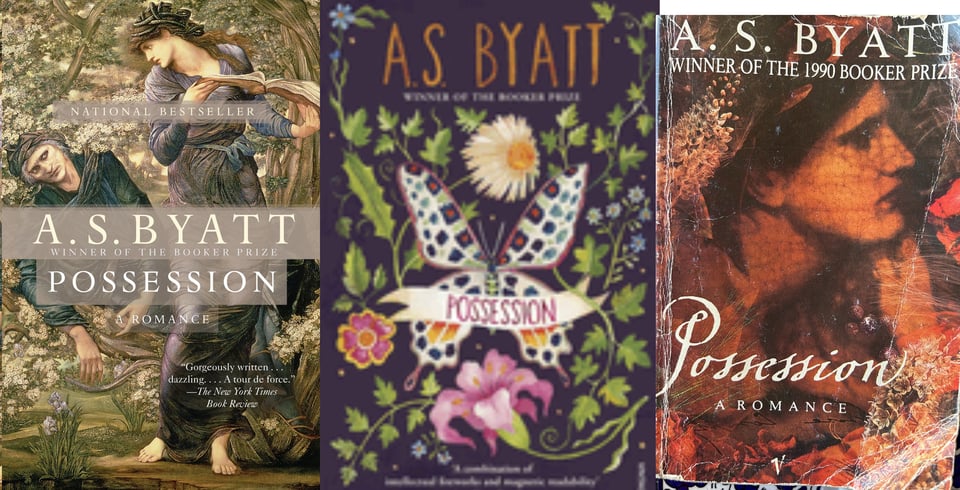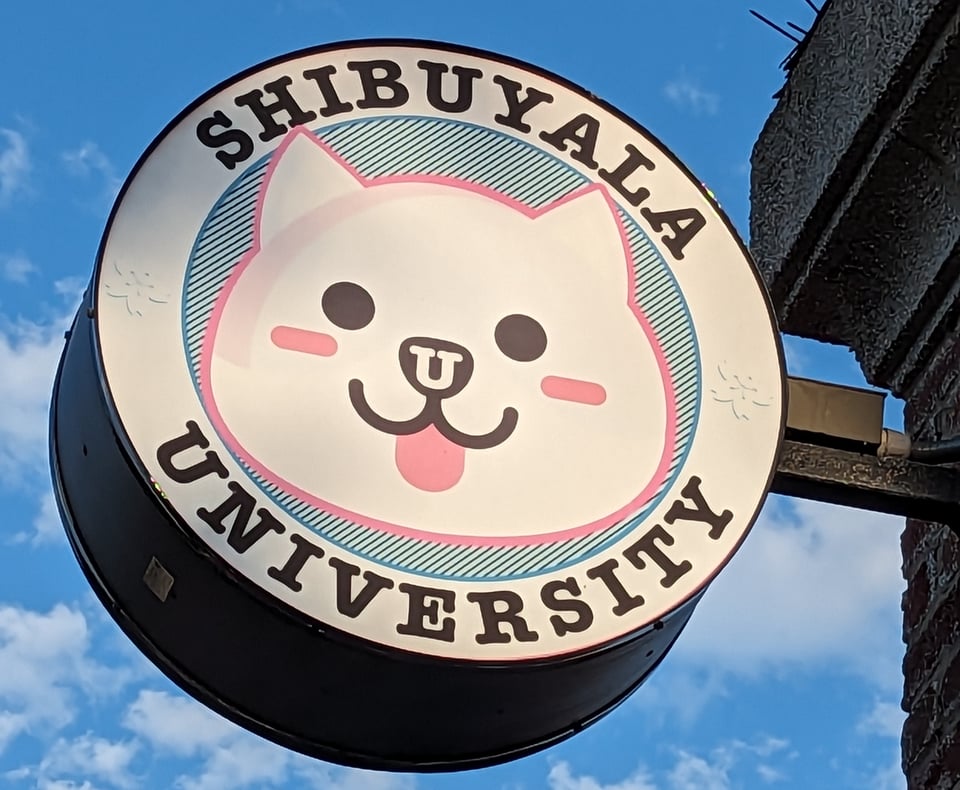What Is Dark Academia? I Asked 3 of my Favorite Authors
Gonna be a short newsletter this week, because I’m still recovering from a month of constant travel around the release of my new novel Lessons in Magic and Disaster. (You can still get a signed, personalized and doodled copy from Green Apple! Also, come see me and some other wonderful authors at Writers With Drinks in San Francisco on Friday!)
So this week, I’m sharing a ton of material that was cut from my LitHub article about A.S. Byatt’s Possession and how it shaped Lessons in Magic and Disaster’s academic detective story.
While writing that LitHub piece, I talked to a few influential writers of Dark Academia and asked them if they consider Possession part of the genre — and their answers were super thought-provoking. But they weren’t really central to the topic I was writing about, and all that fantastic stuff ended up getting cut from the article. So I’m sharing it with y’all now.
So does Possession count as Dark Academia? Here’s why this matters.

I can't remember when I first heard of Possession by A.S. Byatt — one day, all of my friends were squeeing about it. Possession had already won the Man Booker Prize, but it also became a must-read among my circle of friends who didn't usually read other Booker winners. The word got out: It's a gorgeous love story about book nerds, for book nerds!
I was the exact target audience for Possession back then: I'd grown up around academia, thanks to my college-professor parents, and I'd studied English literature at a university in the U.K. as an undergrad. Still, I liked the book but wasn't obsessed with it the way all of my friends were.
A couple of years ago, I returned to Possession and fell, at last, in love.
I was in the throes of revising my new novel Lessons in Magic and Disaster, which is about a witch named Jamie who teaches her heartbroken mother how to do magic. Jamie is also a PhD student, and her dissertation research probes the secrets of a 1749 novel named Emily that turns out to have some hints about magic. (I made Emily up; there's no such book.)
But I quickly learned that I shouldn't refer to Possession as part of the ultra-popular dark academia (sub)genre, alongside fellow early 1990s book The Secret History by Donna Tartt. Possession doesn't contain many of the defining traits of dark academia, such as opulent secret societies and hidden violence. That said, Byatt's masterpiece does have a lot to say about privilege and money, and the lengths to which people will go to get ahead in academia. And maybe the fact that our dominant narrative about higher education has no room for a book like Possession says something pretty dark about our attitude to learning.

Until recently, I wasn't sure how strict a definition to apply to dark academia, because I'd heard the term used in all kinds of contexts. If you go by this New York Times piece, it's an aesthetic that's mostly about collegiate vibes, as denoted by excellent sweater game. This Bookriot feature, meanwhile, talks about stories involving a working-class protagonist who gets drawn into a clique of beautiful rich people who quote great poetry and hide a secret cult.
"My gut instinct is that Possession is not a precursor to dark academia, but is certainly influential and relevant and does fall within an adjacent Pinterest aesthetic, which I think would be Romantic Academia," says Olivie Blake, author of The Atlas Six and Gifted & Talented.
Blake says there are actually three related flavors of academia: dark, light and romantic. They "share one thing in the center of the Venn diagram: they all revolve around the concept of obsession and the pursuit of knowledge."
Blake added:
I would say, from the perspective of someone in publishing who wrote what is generally considered one of the touchstone works: dark academia is actually much pulpier than Possession. For one thing, it nearly always involves murder. I think dark academia en masse is a kind of modern Penny Dreadful, but the high-minded approach is to do it like Tartt did, with a very literary interest in academia itself. Dark academia is also often sexualized with shared themes to the Gothic--incest, a death that haunts the narrative before it even begins, devolution to insanity, an internal decay. …
If dark academia acknowledged both books as influences, then certainly fewer novels would fall within the brackets; I think there is an accessibility implied in dark academia. It's for the common man, which is certainly ironic, since most people who consume dark academia tend to miss the point of it, which is that it is dangerous to commit to an aesthetic and compromise yourself as a result.
I also talked to Leigh Bardugo, author of Ninth House.
“It's wild to think of Possession as a neglected text,” Bardugo told me, “but I think it is so much more romantic and quite literally Romantic than The Secret History which has its murder right up front and is also more deeply focused on Classics and a less accessible kind of scholarship. I think that opacity works in The Secret History's favor when it comes to the pleasures of Dark Academia because this sense of occlusion can gesture to the supernatural in a way that Possession doesn't care to.”
I was glad that Blake described Possession as "influential and relevant," because it's become one of my all-time favorite novels. It's one of those books that goes places, with characters you would die for who grow and change. It also feels big because it encompasses so many ideas and themes, and it is crammed with book-within-a-book shenanigans.
Re-reading Posssession, I was utterly sucked into the story of Roland, a PhD-turned-researcher who uncovers a scrap of a letter that hints at a secret affair between two fictional Victorian poets: Randolph Henry Ash and Christabel LaMotte, and enlists the aid of a LaMotte scholar named Maud Bailey to uncover the truth.

I loved the parallel romances between the two poets and the two scholars, and the treasure hunt for documents which slowly make sense of the complicated texts written by equally complicated people. Rather than separating the art from the artist, Roland and Maud slowly discover how both Randolph and Christabel reflected their actual lives in their work. Byatt uses poetry as an important driver of the story, and her fake Victorian poetry is shockingly good -- better than a lot of actual poetry from the era I've read.
I did notice that Byatt cheats a bit here and there. At one point, a crucial document pretty much drops into Roland and Maud's laps, and other clues seem to arrive at rather convenient moments. (In Lessons in Magic and Disaster, employing a similar structure, I take great pains to show how Jamie uses her witchcraft to help her sniff out certain vital letters and notes.) Toward the end, Byatt abandons her structure of only sharing primary sources from the nineteenth century, and writes a few scenes set during the era, giving the reader some closure that Maud and Roland can never learn about.
Even with all its grubby realism, Possession celebrates a life in books in a way that feels aspirational. Meanwhile, the books at the center of dark academia represent my worst fears about higher education: that it's just about status and privilege, that it only exists to confirm someone's membership in the upper classes. That there is no longer any room for the love of learning for its own sake.
Says Bardugo:
I would argue that "learning for its own sake" is a privilege. It sounds very noble, very life of the mind. But the reality is that having the time and energy to devote to poetry, and history, or even the arcane, is just a tremendous luxury. I needed to enter the workforce immediately when I left college. I could not afford a pause and I remember a sense that this was somehow gauche. I had friends who were headed to Europe or into unpaid internships. I wasn't a have-not, but I understood that my priorities were different from my peers.
And yeah, in a world of student loans and ever-increasing housing costs, the notion of devoting all of your time to obsessing over the meaning of nineteenth-century poetry does indeed feel like more of a fantasy than witchcraft or demons.

Author Mona Awad says that her novel Bunny definitely contains "a tension between learning for its own sake and learning as a marker of privilege/power. I think the institutions that Bunny is perhaps satirizing, draw on the occult idea that they are gatekeepers to access of elite knowledge. The unspoken promise is that the world rewards those who gain the knowledge bred in those institutions with power and privilege." In Bunny and its sequel, I Love You, Bunny, she sets out to explore how our relationship to learning is changed, or compromised, by moving through this system.
Awad says her protagonist, Sam, has "a more earnest relationship to knowledge seeking that makes her an outsider, but she quickly becomes vulnerable to the lure of power that the institution promises. But because it's Bunny, that power is also a bit of a joke. What does it get you? A fluffle of dickless dudes. For me, satire is a crucial component of drawing out this tension" between learning as a end unto itself versus as a path to prestige.